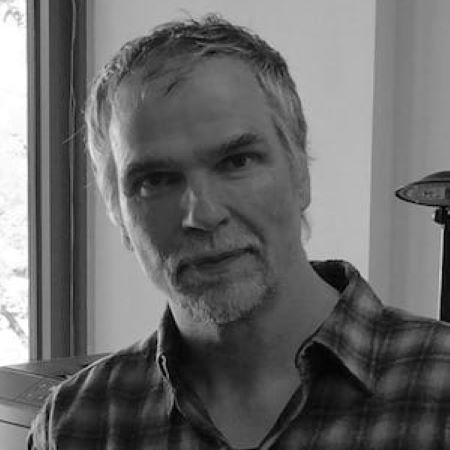So the saying goes-which makes what they did say when they were alive vulnerable to various distortions and misunderstandings. Keenly aware of this problem, Tad Brennan, Professor of Ancient Greek Philosophy at the Sage School of Philosophy as well as Professor of Classics, is morally invested in allowing ancient thinkers, such as Plato and Aristotle, to be heard more clearly. “I have always felt that careful listening is a moral activity,” says Brennan, “and that distortion of people’s words is an immoral act.” In this regard, Brennan’s academic motivation in ancient Greek philosophy has something important in common with careers that involve striving for the faithful understanding of any other group whose words are distorted or misunderstood: criminal defendants, refugees, or indigenous peoples.
The ethical aspect of Brennan’s academic motivation is not limited to doing individual justice to the ancient thinkers themselves. Since the influence of ancient Greek philosophers remains central to modern western culture, restoring the original meaning of their words is essential to preventing particular group-interests and ideological agendas from biased re-writing of the foundational thoughts of our culture.
For example, Brennan saw Plato quoted in inscriptions in both the Imperial War Museum in London and at West Point as saying: “Only the dead have seen the end of war.” This suggests that Plato believed that war is inevitable, and that pacifism is an illusion. Since the entire corpus of Plato’s works and sayings are documented and preserved by the academics (“It’s a closed book”), Brennan tried to find out where Plato makes such a claim. He finally found the likely source in Plato’s Laws, but from the mouth of a character in the dialogue, Cleinias, whose views Plato opposes.
Another example is the charge that Plato and Aristotle were anti-democratic. “Before criticizing these thinkers, we must first understand them accurately,” says Brennan. In fact, Plato never opposes majority voting in his texts. When Plato does appear to criticize democracy, more often than not, he is using democracy as an analogue to psychological malady of an individual, instead of literally denouncing it as a political institution.
By practicing “careful listening” with the ancient thinkers, Brennan hopes to contribute to developing “a culture of accuracy” in our society. “It’s like wearing a seatbelt,” says Brennan. Car accidents do not happen regularly, but when they do, the habit of wearing the seatbelt can prevent a disaster. “It is an important pattern of behavior to lay down.”
When asked about his proudest academic achievement so far, Brennan mentioned his 2005 book, The Stoic Life. He believes the book made it easier for future scholars to study Stoicism, and began a lively discourse by creating new questions and controversies. “I like it when someone thinks I asked an interesting question,” says Brennan. Brennan finds it deeply fulfilling even when other academics disagree with his claims, if the disagreement generates a possibility for new debates. The Stoic Life has also found an audience outside of philosophy: it has been cited by scholars of history, cultural studies, and religious studies, and is read by non-academics as well. This wide reception confirms Brennan’s view of the study of ancient philosophy as inherently interdisciplinary, requiring contributions by scholars of culture, geography, history and language.
Brennan also mentions training both graduate and undergraduate students as an important and meaningful part of his role as an academic. Brennan has successfully supervised many graduate students during his career, and has even co-authored an article with Jongsuh Lee, an undergraduate student (‘A Relative Improvement’, Phronesis 2014).
Brennan is currently writing about Aristotle’s theory of perception. One can ask: what is the difference between a human seeing a tulip, and a robot or animal seeing a tulip? According to Aristotle, perception, first of all, involves a physical process. The tulip causes physical changes in the air, influences the particles and light waves, and finally causes changes in the eyes. If someone merely received information about the tulip from an encyclopedia article, we would not say that she has in fact “seen” the tulip. On the other hand, an information-theoretical process is no less crucial. If someone received the wrong information about the tulip from her senses (for example, if she reported that the tulip has seven petals, when it in fact has three), we would not say that she has in fact “seen” the tulip.
This is what Aristotle means when he says that perception is “receiving the perceptible form of the thing without the matter.” When I perceive a tulip, the tulip’s information directly transmits from the tulip into me. “The visible form enters me without me physically having a tulip in my eyes.” Perception, Brennan explains, is independent of the “particular hardware that is involved.”
When asked if we “perceive” logical and mathematical truths, Brennan appeared delighted, and admitted that there is a lot of controversy about this. “No one really knows for sure.” Brennan conjectures that purely logical and mathematical truths are truths about the perceptible world, whose knowledge essentially involves conceptual abstraction apart from the perceptible forms themselves. Thus, such truths may not be knowable through perception alone.
The study of the Aristotelian theory of perception, much to Brennan’s excitement, has broad-ranging implications (and potentials for new discussions) on the unlikeliest subjects: such as religious mysticism. In Aristotle’s view, the perceiver is never a detached, unmoved observer; the perceiver herself inevitably changes through the very act of perception, for the form of the perceived thing enters her. On the other hand, unless the perceiver herself has a particular form in the first place, she would be unable to perceive certain things. “If my eye jelly is yellow, I might be unable to see the color yellow-or perhaps the exact opposite might happen, where I can see no other color except yellow. The same would hold true if I had a vanilla-flavored tongue, etc.” This intimate relation between epistemology and ontology in Aristotle’s theory of perception may have implications on mystical and spiritual subjects such as: “What kind of thing would I become if I perceive God?” or “In order to perceive God, what kind of thing must I first become?”
To the question, can the study of philosophy can help one become a better person, Brennan answers, modestly, “Potentially.” Studying Stoicism or Epicureanism, or the thoughts of Plato and Aristotle, could provide people with frameworks to refer to in their conduct. However, the study of philosophy would be of no moral use if one had the wrong intentions, such as “I would like to become more clever than everyone else by studying Aristotle.” Nor would philosophy be effective if, at every moment of ethical decision-making, one said to oneself, “Although I admit that there is a general rule of ethics, my current situation is an exception.” An example of this would be an adulterer who excuses himself by claiming that his spouse is exceptionally callous, and this is why he is cheating on her.
Ancient Greek thinkers grappled with the problem of how to foster a virtuous life. Plato, for example, believed that “obstacles to virtuous life are littered throughout society.” This led him to conclude that we “cannot leave any aspect of human development up to chance.” Aristotle, on the other hand, saw the process of producing good human beings less as a delicate process that can go wrong at any point. He thought “it would probably work out fine,” even if the rulers do not intervene at every stage.
Brennan’s various non-philosophical interests include song-writing and bicycling. He has written the lyrics for the Rutabaga Chorus, now famous at the Ithaca farmer’s market, over Handel’s original Hallelujah Chorus melody. For more than 10 years now, the Rutabaga Chorus (“Rutabaga! Rutabaga! Rutabaga!”) has resounded at the end of each annual International Rutabaga Curling Championship. Yes, it is curling, but done with rutabagas.
Brennan also participates in the Southern Tier’s annual AIDS Ride for Life, a fundraiser bicycle ride around Cayuga Lake.
Last but not least, Brennan loves his family. He frequently bicycles with his wife, and enjoys spending time with his two children.





